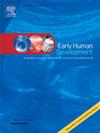倡导新生儿药物开发。
IF 2.2
3区 医学
Q2 OBSTETRICS & GYNECOLOGY
引用次数: 0
摘要
新生儿护理需要更有力的药物治疗指导(配方、剂量方案、安全性和有效性信息)。这需要有组织的宣传。因此,我们讨论了与改善药物信息相关的宣传工作,包括当前实践、临床试验、当前环境和试验准备。这些步骤可以通过生成证据来改善新生儿药物开发,尤其是在遵循方案方法(确定剂量、资格标准和结果)生成证据的情况下。试验设计应遵循药物的预期用途和研究参与者面临的益处/风险。规范性试验(解释性、受控环境、内部有效性、终点反映临床重要结果、有力的因果证据)有时是必要的。然而,有些研究问题最好通过信息性试验来解决。无论哪种情况,试验设计都可以得到现实世界的数据和证据、其他亚人群的推断或基于生理的药代动力学模型的支持。数据管理、安全性报告和药物管理应具体明确,并按比例进行。试验设计和实施还需要了解新生儿特有的 "良好临床实践"。相关方面包括方案和试验设计、研究技能和与伦理委员会或机构研究委员会的互动、研究团队所需的能力和才干,以及与同意和招募相关的方面。本文章由计算机程序翻译,如有差异,请以英文原文为准。
Advocating for drug development in newborn infants
Neonatal care needs more robust guidance on pharmacotherapy, (formulation, dosage regimen, safety and efficacy information). This requires structured advocacy. We therefore discuss advocacy related to improving information about medicines including current practices, clinical trials, the current setting, and trial preparedness. This steps can improve neonatal drug development by generating evidence, particularly if a programmatic approach (identify dosing, eligibility criteria, and outcomes) to evidence generation is followed.
Trial design should be guided by the intended use of the medicine and the benefits/risks that the study participant is exposed to. Regulatory trials (explanatory, controlled environment, internal validity, endpoints reflect clinically important outcomes, strong causal evidence) are sometimes necessary. However, some research questions are best addressed with informative trials. In either case, trial design can be supported by real world data and evidence, extrapolation from other subpopulations, or physiologically-based pharmacokinetic modeling. Data management, safety reporting, and management of drugs should be specified and proportionate.
Trial design and conduct also necessitate awareness of Good Clinical Practice specific to neonates. Relevant aspects include protocol and trial design, research skills and interactions with Ethics Committees or Institutional Research Boards, capacities and competences needed within the research team, and aspects related to consent and recruitment.
求助全文
通过发布文献求助,成功后即可免费获取论文全文。
去求助
来源期刊

Early human development
医学-妇产科学
CiteScore
4.40
自引率
4.00%
发文量
100
审稿时长
46 days
期刊介绍:
Established as an authoritative, highly cited voice on early human development, Early Human Development provides a unique opportunity for researchers and clinicians to bridge the communication gap between disciplines. Creating a forum for the productive exchange of ideas concerning early human growth and development, the journal publishes original research and clinical papers with particular emphasis on the continuum between fetal life and the perinatal period; aspects of postnatal growth influenced by early events; and the safeguarding of the quality of human survival.
The first comprehensive and interdisciplinary journal in this area of growing importance, Early Human Development offers pertinent contributions to the following subject areas:
Fetology; perinatology; pediatrics; growth and development; obstetrics; reproduction and fertility; epidemiology; behavioural sciences; nutrition and metabolism; teratology; neurology; brain biology; developmental psychology and screening.
 求助内容:
求助内容: 应助结果提醒方式:
应助结果提醒方式:


